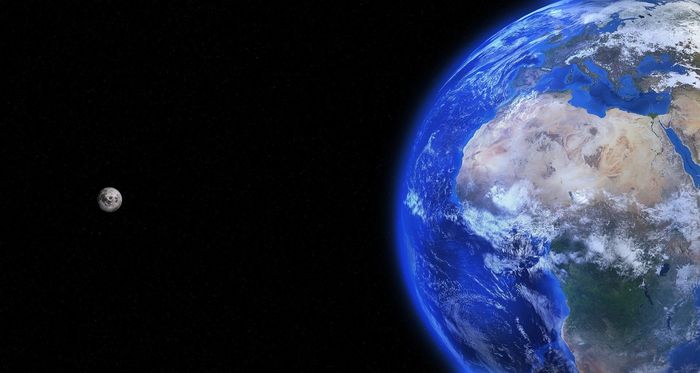What does space taste of? A raspberry cocktail
Jeremy Weinstein explores the more quirky discoveries about our universe. Namely, what could a cosmic cuisine taste like?

Over our time on this planet, humans have sampled pretty much all of Earth’s culinary offerings. So much so, in fact, that restaurants are taking increasingly desperate measures to provide an interesting dining experience to guests. It almost seems like the next circle in this Dantean hell is to start sourcing ingredients from outer space — but in the event that this horrific idea is implemented, what flavour would we find?
It turns out that the answer is... raspberries (potentially).
This may sound ludicrous at first, but in 2009, a team of astronomers discovered the raspberry-like quality of a dust cloud near the centre of our galaxy, known as Sagittarius B2. While they were unsuccessful in their initial aim to find amino acids, the building blocks of life, they did spot a compound called ethyl formate which, among other accolades, is known for giving raspberries their flavour. It also has the convenient property of smelling like rum, suggesting that this dust cloud, nearly 30,000 light years away from Earth, has the flavour profile of a potentially very pleasant cocktail.
It is important to stress that in no way does this discovery prove the existence of some elusive space-raspberry; ethyl formate is a relatively simple compound and just one of a smorgasbord of chemicals that the fruit comprises.
Similarly, Sagittarius B2 also contains a whole host of other compounds —many belonging to the family of alcohols, and all in such low concentrations that even the most finely attuned set of taste buds would struggle to discern a flavour.
Though it is all very well that we can, in theory, determine the taste of places beyond our planet, the question of relevance begs to be asked; if there is no such thing as a space raspberry, why should we care about tasting dust from halfway across the galaxy?
The slightly mundane truth is that, intrinsically, we shouldn’t. We can already experience all the flavours that Sagittarius B2 has revealed to us from the comfort of our own planet, whether that be through synthesising them in labs or actually eating a piece of fruit from time to time.
Yet herein lies the very reason that discoveries like this might be worth caring about; the fact that these are the same carbon-based molecules found in organic material on our planet provides a tantalising hint at the potential for extraterrestrial life.
Even though no amino acids were found in Sagittarius B2, the presence of any carbon-based material is a promising sign that life could develop in future: in particular, many of the compounds found in the dust cloud are known precursors to the fundamental structures that underpin life.
It is incredibly easy to write off the search for developed life elsewhere in the cosmos, given its lack of success so far. In the words of physicist Enrico Fermi: “But where is everybody?" Here, Fermi poses a paradox: given the unfathomable expanse of the universe, why have we not encountered extraterrestrial life?
One cannot suggest that life won’t exist elsewhere in the universe simply because we haven’t found it because this neglects the scales we are dealing with, both temporally and spatially. Human life has occupied our planet for a few hundred thousand years compared with the 13-or-so billion that the universe has existed; equally, our solar system is just one of billions in the Milky Way alone which, in turn, is one of billions of galaxies that we can see. Therefore, one can reasonably assume that alien life is plausible.
What form extraterrestrial life might take is also completely unknown, since ecosystems could be at any stage of their development at first encounter. In fact, finding a species similar to the raspberry is far more realistic than finding sentient life, simply due to the comparative simplicity of the physiology required.
So, while parts of space may offer hints of familiar flavours, and with them, the possibility of extraterrestrial life, don’t hold your breath for the arrival of an alien civilisation — or space raspberries.
 Comment / Cambridge students are too opinionated 21 April 2025
Comment / Cambridge students are too opinionated 21 April 2025 Interviews / Meet the Chaplain who’s working to make Cambridge a university of sanctuary for refugees20 April 2025
Interviews / Meet the Chaplain who’s working to make Cambridge a university of sanctuary for refugees20 April 2025 News / News in brief: campaigning and drinking20 April 2025
News / News in brief: campaigning and drinking20 April 2025 Comment / Cambridge’s tourism risks commodifying students18 April 2025
Comment / Cambridge’s tourism risks commodifying students18 April 2025 Comment / Cambridge’s gossip culture is a double-edged sword7 April 2025
Comment / Cambridge’s gossip culture is a double-edged sword7 April 2025






